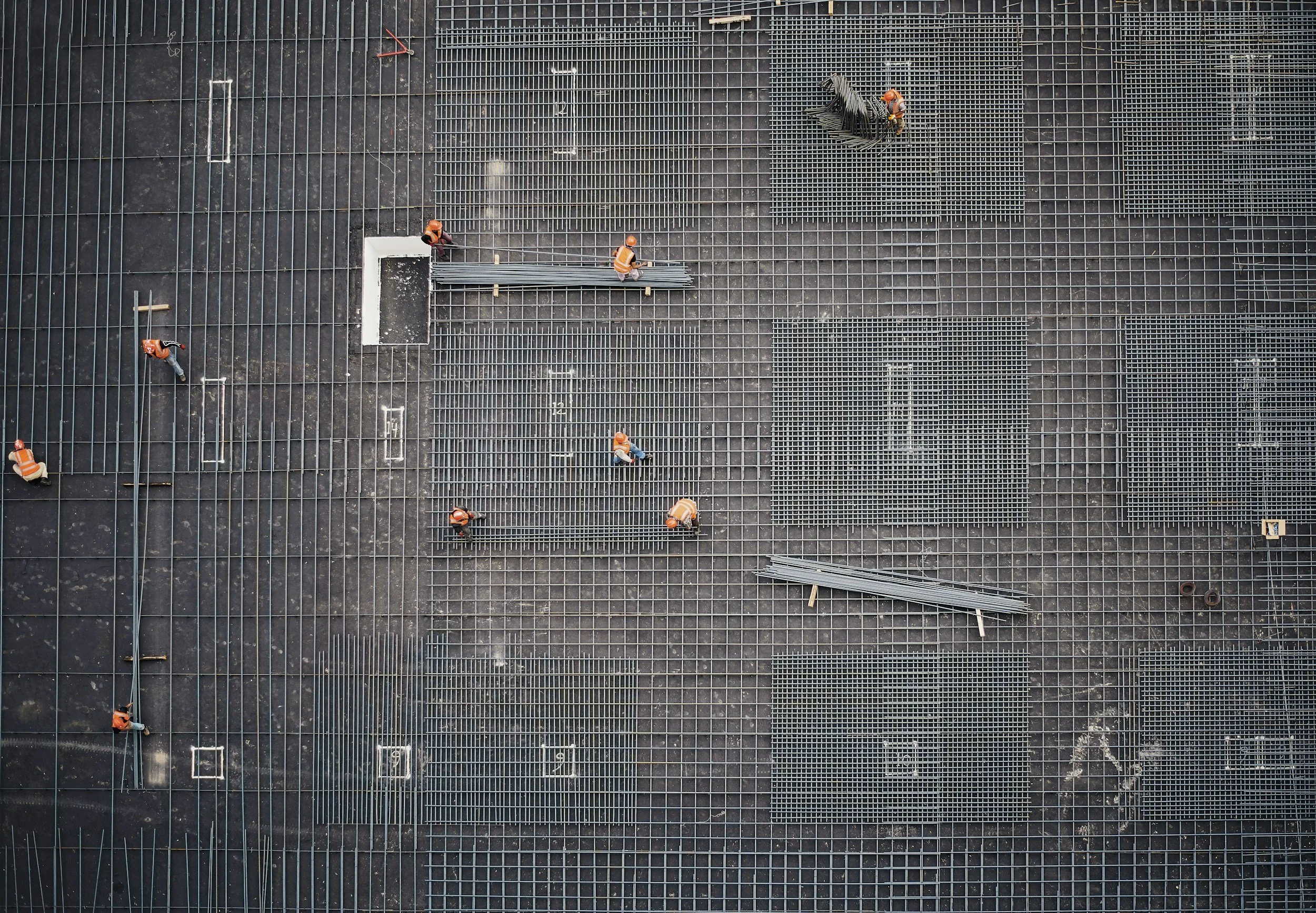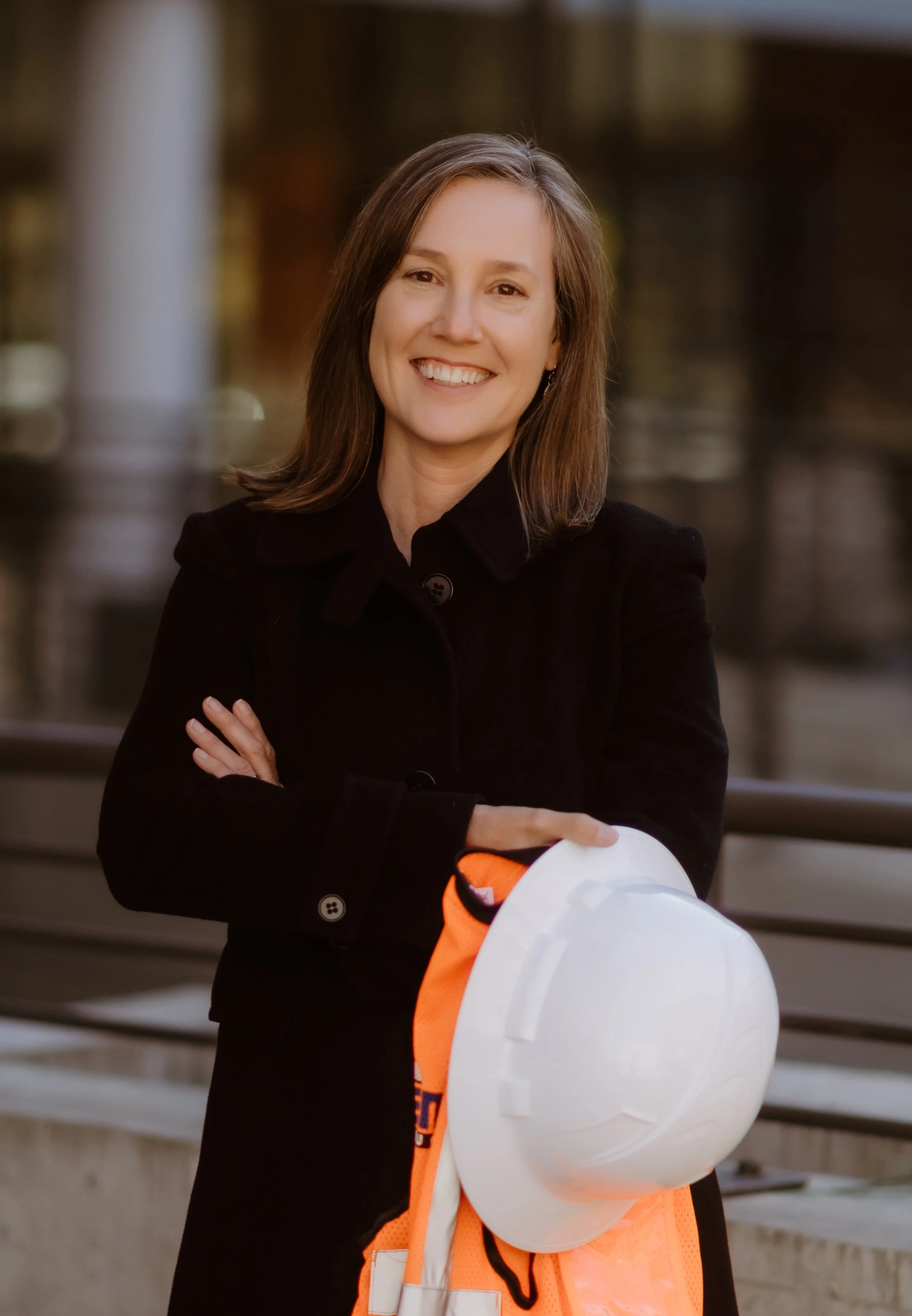
Colorado Construction Lawyers
Structura Law | Metro Denver & Statewide Legal Counsel
Construction Legal Services Throughout Colorado
Protect Your Colorado Construction Projects From Foundation to Completion and Beyond
Protect your Colorado construction project, investment, and business. When disputes, defects, or contract issues arise, experienced legal counsel makes all the difference. Structura Law provides strategic representation to property owners, developers, general contractors, and subcontractors throughout Denver and all of Colorado, helping clients navigate the complex world of construction law with confidence and clarity.
Jennifer Arnett's unique background as a former Chief Litigation Officer for a national property and casualty insurance company provides invaluable insight into how construction claims are evaluated and resolved—knowledge that benefits clients on all sides of construction matters.
Our Construction Law Services for Colorado Clients
Contractors & Subcontractors
Contract Negotiation that balances protection with competitiveness
Construction Defect Claim Defense against allegations of improper work
Payment Recovery & Mechanics' Liens to secure earned compensation
Delay and Change Order Disputes to protect your schedule and margins
Insurance Coverage Maximization for claims against your business
Common Construction Legal Challenges Faced in Colorado
Resolving Denver Construction Defects
From minor cosmetic issues to major structural failures, we handle all types of construction defect claims in Denver, Boulder, Colorado Springs, and throughout the state:
Structural Issues: Foundation failures, sinking roadways, framing weaknesses, building code violations
Water Damage & Moisture Problems: Roof leaks, window defects, inadequate waterproofing, mold remediation
Soil-Related Problems: Improper compaction, expansive soil issues, site preparation failures, erosion control
Materials & Installation Failures: Defective products, improper application techniques, warranty violations
Colorado Construction Contract Disputes
Construction contracts form the foundation of every project relationship:
Scope of Work Disagreements: When parties dispute what was included in the original agreement
Change Order Conflicts: Disputes over additional work, substitutions, or modifications
Payment Disputes: Late payments, withheld retainage, and progress payment disagreements
Termination Issues: Wrongful termination claims or termination for cause disputes
Warranty and Guarantee Enforcement: Post-completion repair responsibilities
Front Range Delay and Disruption Claims
Schedule impacts can cause significant financial damages to Colorado construction projects:
Critical Path Delays: Identifying true schedule impacts versus concurrent delays
Force Majeure Events: Weather, pandemics, and other unforeseeable circumstances
Acceleration Claims: Costs associated with expediting work to meet deadlines
Disruption Analysis: Productivity losses from changed conditions or work sequence
Liquidated Damages Defense: Challenging penalty assessments for late completion
Colorado Mechanics' Liens and Payment Recovery
Ensuring proper compensation for work performed on Colorado construction projects:
Mechanics' Lien Filing and Foreclosure: Securing and enforcing lien rights
Bond Claims: Recovery on payment and performance bonds
Trust Fund Statute Compliance: Navigating Colorado's Construction Trust Fund Requirements
Collections and Judgments: Enforcing payment obligations through litigation
Property Owners & Developers
Contract Review to protect your interests from project inception
Construction Defect Claims to secure proper repairs or compensation
Delay and Disruption Claims when projects fall behind schedule
Payment and Lien Disputes to resolve financial conflicts
Insurance Coverage Analysis to maximize protection for your project
Design Professional Liability Claims resolving architect and engineer errors
Our Construction Law Success Stories
-

Recovering Nearly 80% of Damages in Sinking Roadways Case
When roadways began sinking and concrete cracked in hundreds of locations at an 800+ home development, we represented the general contractor in arbitration against the subcontractor responsible for utility installation and soil compaction. Despite challenging liability issues, we secured an award recovering nearly 80% of requested damages.
-

Successfully Defending Against Ruptured Sewer Line Claims
After a large thunderstorm caused a sewer line to burst with significant property damage, we represented the general contractor who had relocated utility lines as part of a municipal project. Through strategic collaboration with civil engineers and materials experts, we established that the cause was the improper installation of a crossing gas line by another entity, successfully shielding our client from liability.
-

Resolving Defective Roof Installation Without Litigation
After homeowners received a replacement roof that was both inferior to the original and improperly installed, we served a construction defect (CDARA) notice on the roofing company and worked with experts and manufacturers to document the defective work. Through strategic negotiation, we achieved resolution before full-blown litigation became necessary.
-

Collaborative Resolution for Stadium Concrete Defects
When a public university filed a pre-litigation construction defect (CDARA) notice claiming defective concrete installation at their football stadium, we represented the general contractor. By facilitating cooperative investigation and solution development, we protected our client while addressing legitimate concerns, preserving important relationships.
Our Strategic Approach to Construction Matters
1. Comprehensive Case Analysis
We conduct a thorough review of all project documents, including contracts, change orders, correspondence, schedules, and payment records. This detailed analysis helps identify strengths, weaknesses, and optimal strategy development.
2. Expert Collaboration
Construction cases often demand specialized knowledge. We work with top industry experts including:
Structural engineers
Architects and designers
Scheduling and delay analysts
Cost estimators and accountants
Soil scientists and geotechnical experts
Building code specialists
Materials testing professionals
These partnerships help us build technically sound cases that stand up to scrutiny.
3. Resolution Pathways
We pursue the most effective resolution path for your situation:
Pre-litigation negotiation: Often the most efficient option that preserves business relationships
Mediation: Structured negotiations with a neutral third party
Arbitration: More formal than mediation but typically faster than court; often required by construction contracts
Litigation: When necessary to protect your interests
4. Clear Communication
Throughout the process, we provide straightforward explanations of complex technical and legal issues. You'll always understand where your case stands and what options are available.
Understanding Construction Law in Colorado
Colorado's construction industry operates under a complex framework of state-specific statutes, regulations, and case law that affect every aspect of a project:
Colorado Construction Defect Action Reform Act (CDARA)
This important legislation (C.R.S. Title 13, Art. 20, Pt. 8) establishes notice requirements, inspection rights, and liability limitations for construction defect claims. Understanding these requirements is essential for both pursuing and defending claims effectively.
Colorado Mechanics' Lien Statutes
Colorado has specific requirements (C.R.S. 38-22-101) for preserving and enforcing mechanics' lien rights, with strict deadlines that contractors, subcontractors, and suppliers must follow to protect payment rights in Denver, Boulder, and throughout the state.
Contract Interpretation
Construction projects often involve multiple layered contracts between owners, designers, contractors, subcontractors, and suppliers, each with unique terms and legal implications. Interpreting how these contracts align and which clauses are enforceable under Colorado law requires careful analysis. A solid understanding of construction law is crucial when drafting or negotiating construction agreements for projects across the Front Range.
Statutes of Limitation and Repose
Construction claims in Colorado must be filed within specific timeframes, with a two-year statute of limitations from defect discovery and a six-year statute of repose, the time by when a defect must manifest.
Why Choose Structura Law for Your Colorado Construction Matter?
Nearly 25 Years of Experience
Jennifer Arnett has successfully handled construction claims for much of her career, including complex multi-party disputes involving major developments, commercial properties, and residential communities throughout Colorado. Since founding Structura Law (formerly Arnett Litigation), she has built a track record of effectively resolving complicated construction matters for clients on all sides of the industry.
Proven Success with Colorado's Construction Laws
Our firm has successfully navigated the complexities of Colorado-specific construction statutes in numerous cases, leveraging our deep understanding of this specialized area to achieve favorable outcomes for our clients. We've recovered substantial compensation for property owners while also successfully defending contractors against unwarranted claims in Denver, Boulder, Fort Collins, and beyond.
Technical Expertise That Makes the Difference
Construction cases require both legal and technical knowledge. Jennifer Arnett regularly collaborates with leading structural engineers, architects, soil scientists, and other construction experts to build compelling cases. Her ability to understand and communicate complex technical issues in clear, persuasive terms gives our clients a significant advantage in both negotiations and courtroom proceedings.
Balanced Perspective From All Sides
With experience representing owners, developers, general contractors, subcontractors, and homeowners, we understand how all parties approach construction disputes. This comprehensive perspective allows us to anticipate opposing strategies and develop more effective approaches for our clients, whether you're a homeowner in Denver or a commercial contractor in Colorado Springs.
Focus on Practical Solutions
We recognize that prolonged litigation can drain resources and disrupt business. Our approach emphasizes efficient resolution while protecting your interests, whether you're pursuing claims or defending against them. We balance legal strategy with business realities—and when full-blown litigation is the best approach, we take decisive action.
FAQs
-
You have two years from discovery of a construction defect to file a claim in Colorado, subject to a six-year statute of repose.
Specifically:
Six years for any latent defects to arise
Two-year statute of limitations from when you discovered or should have discovered the issue
These timeframes can be complicated by contractual notice requirements. Missing a deadline can permanently bar your claim, so it's crucial to consult with a Colorado construction attorney promptly when issues arise.
-
CDARA requires written notice and an opportunity to repair before filing a construction defect lawsuit in Colorado. This law establishes a strict pre-litigation process for construction defect claims, including:
Mandatory written notice to construction professionals 75 days before filing suit (90 days for commercial properties)
Detailed description of alleged defects in the notice
30-day inspection rights for construction professionals after notice
30-day window for construction professionals to offer repairs or compensation (45 days for commercial properties)
Specific limitations on recoverable damages
Failing to comply with CDARA's procedures can result in a lawsuit being stayed. Both property owners and construction professionals benefit from experienced legal guidance to navigate this complex process.
-
File preliminary notices and preserve lien rights within strict statutory deadlines to protect payment on Colorado projects. Colorado's mechanics' lien process includes:
Notice of Intent to Lien (10 days before filing)
Statement of Lien Rights (4 months after last work performed)
Missing these deadlines permanently eliminates lien rights. At Structura Law, we help clients establish proactive processes to protect payment rights from project start to completion.
-
You can recover direct repair costs, delay expenses, and sometimes consequential damages in Colorado construction cases. Potential recoverable damages include:
Direct costs of repairs or completion
Delay and extended overhead costs (with proper documentation)
Lost profits and business interruption (if foreseeable)
Diminution in property value (particularly in defect cases)
Relocation expenses during repairs (for serious habitability issues)
Attorney fees and costs (only if provided by contract)
The specific damages available depend on your role (owner, contractor, supplier), contract terms, and the nature of the dispute. Colorado courts require clear documentation and expert testimony to establish many of these damage categories.
-
Insurance often provides the primary source of recovery in Colorado construction cases, but coverage depends on policy language and Colorado law. Construction projects typically involve multiple insurance policies, including:
Commercial General Liability (CGL) coverage for property damage and bodily injury
Builders Risk policies for damages during construction
Professional Liability insurance for design errors
Wrap policies (OCIP/CCIP) for project-wide coverage
Colorado courts have issued significant rulings on insurance coverage for construction defects, including when defective work constitutes an "occurrence" and how business risk exclusions apply. Jennifer Arnett's background as a Chief Litigation Officer for a national insurance company provides Structura Law clients with unique insights into maximizing coverage for construction claims.
-
Yes, but your case will proceed through arbitration rather than court litigation, following the procedures in your contract.
Colorado generally enforces arbitration provisions in construction contracts, with these key considerations:
The claim must be filed within the same statute of limitations as a court case
The arbitration process typically involves:
Filing a demand for arbitration with the specified forum (AAA, JAMS, etc.)
Selection of arbitrator(s) according to the contract
Limited discovery compared to litigation
A binding decision with very limited appeal rights
While arbitration is often faster than litigation, it may involve higher upfront costs and provides less extensive discovery. We can help you navigate arbitration requirements for your Denver or Colorado construction project, identifying strategic advantages within the process.
Ready to discuss your case?
Whether you require proactive pre-litigation strategies or assertive courtroom representation, Jennifer Arnett and the team at Structura Law are dedicated to achieving the best possible outcome for your legal matter. Contact us today to schedule a confidential consultation.
Serving Clients Throughout Colorado
We represent clients throughout Colorado, including Denver, Colorado Springs, Fort Collins, and mountain communities. We can arrange video consultations for clients who cannot easily travel to our office.
What to Expect
When you contact Structura Law, we will:
Respond promptly to your inquiry
Listen carefully to understand your situation
Provide an initial assessment of your legal matter
Explain our approach and fee structure clearly
Develop a tailored strategy if you choose to work with us
Our goal is to make the legal process as clear and straightforward as possible while providing the sophisticated representation your matter deserves.







